OFR Climate Implications for Financial Stability Conference Participants
Published: September 9, 2022

Tobias Adrian is the Financial Counsellor and Director of the Monetary and Capital Markets Department of the International Monetary Fund (IMF). In this capacity, he leads the IMF’s work on financial sector surveillance, monetary and macroprudential policies, financial regulation, bank resolution, debt management, and capital markets. He also oversees capacity building activities in IMF member countries with regard to the supervision and regulation of financial systems, bank resolution, central banking, monetary and exchange rate regimes, and debt management. Prior to joining the IMF, Mr. Adrian was a Senior Vice President of the Federal Reserve Bank of New York and the Associate Director of the Research and Statistics Group. Mr. Adrian has published extensively in economics and finance journals. His research spans asset pricing, financial institutions, monetary policy, and financial stability, with a focus on aggregate consequences of capital markets developments. He has taught at Princeton University and New York University. Mr. Adrian holds a PhD from the Massachusetts Institute of Technology, an MSc from the London School of Economics, a Diplom from Goethe University Frankfurt and a Maîtrise from Dauphine University Paris.

John Y. Campbell is the Morton L. and Carole S. Olshan Professor of Economics at Harvard University, where he has taught since 1994.
Campbell has published over 100 articles on various aspects of finance and macroeconomics, including fixed-income securities, equity valuation, portfolio choice, and household finance. His books include The Econometrics of Financial Markets (with Andrew Lo and Craig MacKinlay, 1997), Strategic Asset Allocation: Portfolio Choice for Long-Term Investors (with Luis Viceira, 2002), The Squam Lake Report: Fixing the Financial System (with the Squam Lake Group of financial economists, 2010), and Financial Decisions and Markets: A Course in Asset Pricing (2018).
Campbell served as President of the American Finance Association in 2005 and delivered the Ely Lecture to the American Economic Association in 2016. He was a board member of the Harvard endowment from 2004 to 2011, chair of the Harvard economics department from 2009 to 2012, and a member of the
OFR’s Financial Research Advisory Committee from 2014 to 2018. Campbell is also a founding partner of Arrowstreet Capital, LP, a Boston-based quantitative asset management firm.

Cláudia Custódio is an Associate Professor of Finance at Imperial College. She is a research associate at the FMG and ECGI, and a CEPR research fellow.

Mathijs van Dijk is Professor of Finance at the Rotterdam School of Management, Erasmus University and Scientific Director at Netspar, a Dutch thinktank on the theme of pensions. He held visiting positions at Ohio State University, Duke University, and UCLA. He received his MSc in Econometrics (cum laude) from Erasmus University and his PhD in Finance from Maastricht University, the Netherlands. He was a visiting graduate student at University of Warwick and at Princeton University. His research and teaching focus on international finance and investments, with a particular interest in sustainable investing and climate risks. His research was published in leading academic journals such as the Journal of Financial Economics, the Review of Financial Studies, Management Science, and the Journal of Accounting and Economics.

Chris Faint is Head of the Climate Hub Division at the Bank of England. Chris has responsibility for developing and implementing the Bank's strategic approach to climate change across all of its policy operations. He has been particularly focused on the PRA’s supervisory approach to addressing the financial risks arising from climate change, the development of climate scenarios and the Bank's climate scenario analysis exercise (the CBES).
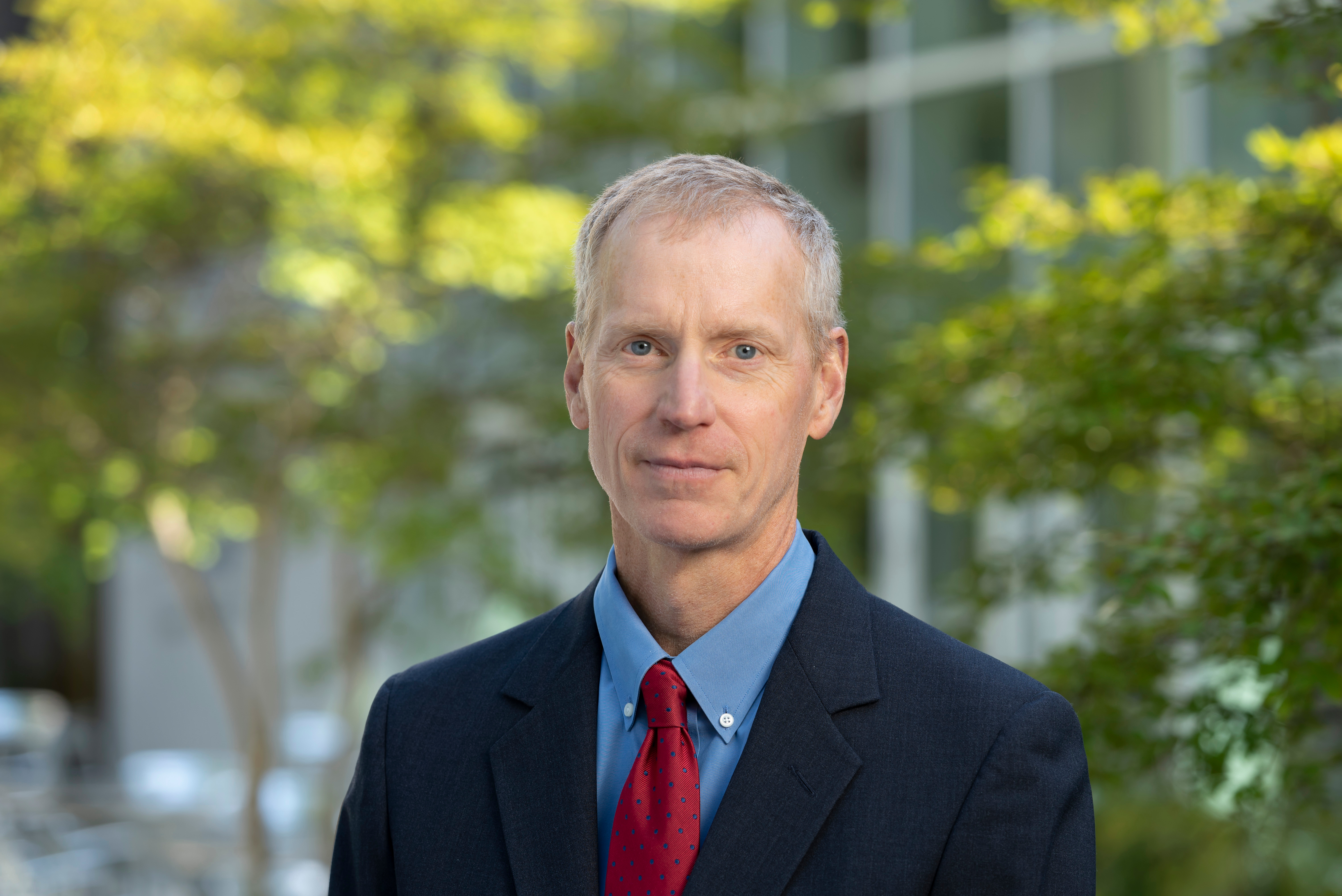
John R. Graham is D. Richard Mead professor of finance at the Fuqua School of Business, where he has won the Outstanding Faculty and several Best Teacher awards, and a research associate of the National Bureau of Economic Research. His research focuses on taxes, capital structure, cash management, governance, financial reporting, and payout policy and has research awards including the Jensen Prize, the Brattle Prize, and the Notable Contribution to Accounting Award. Kroll (Duff and Phelps) publishes his corporate tax rate and optimal capital structure analyses in their Valuation publications. Graham has been president and a director of the American Finance Association (AFA), the Financial Management Association (FMA) and the Western Finance Association, and is a fellow of the AFA and FMA. Graham co-edited The Journal of Finance for six years and worked as a senior economist at Virginia Power for seven years. Graham has directed The CFO Survey (now conducted jointly with the Federal Reserve Banks of Richmond and Atlanta) since 1997.

Paul Hiebert heads the Systemic Risk and Financial Institutions Division of the European Central Bank (ECB). In this role, he leads systemic risk analysis for the euro area feeding into the ECB’s flagship Financial Stability Review, as well as macroprudential policy for the largest euro area banks. In recent years, Paul has also been leading climate-related initiatives of the European Systemic Risk Board as well as Basel Committee on Banking Supervision. These roles build on over 20 years of experience within the ECB, the International Monetary Fund, the Reserve Bank of Australia and the Canadian Department of Finance in various capacities—spanning economic, financial and policy functions for a wide range of countries. He has published on a diverse set of topics, including financial cycles, climate change, global banking, macroprudential policy, housing markets, and fiscal policy. He holds an MA in Economics from McGill University in Montréal.

Harrison Hong is the John R. Eckel Jr. Professor of Financial Economics at the Columbia University Department of Economics and Executive Director of the Program for Economic Research. Before coming to Columbia in 2016, he was on the economics faculty of Princeton University, most recently as the John Scully ’66 Professor of Economics and Finance. Prior to that, he was an associate professor of finance at the Stanford Graduate School of Business from 1997- 2001. He received his BA in economics and statistics with highest distinction from the University of California at Berkeley in 1992 and his PhD in economics from M.I.T. in 1997. In 2009, he was awarded the Fischer Black Prize, given once every two years to the best American finance economist under the age of 40. He received honorary doctorates from Stockholm School of Economics and Aalto University and is a past Director of the American Finance Association. He is a research associate at the National Bureau of Economic Research and an academic advisor at LSV Asset Management. He has contributed to a number of areas in financial economics, including stock market efficiency, behavioral finance, and climate finance. His recent work focuses on the role of the financial system in addressing climate change. He is a co-author on the upcoming Fifth National Climate Assessment for the US Congress and an advisor on several climate risk assessments by the International Monetary Fund.
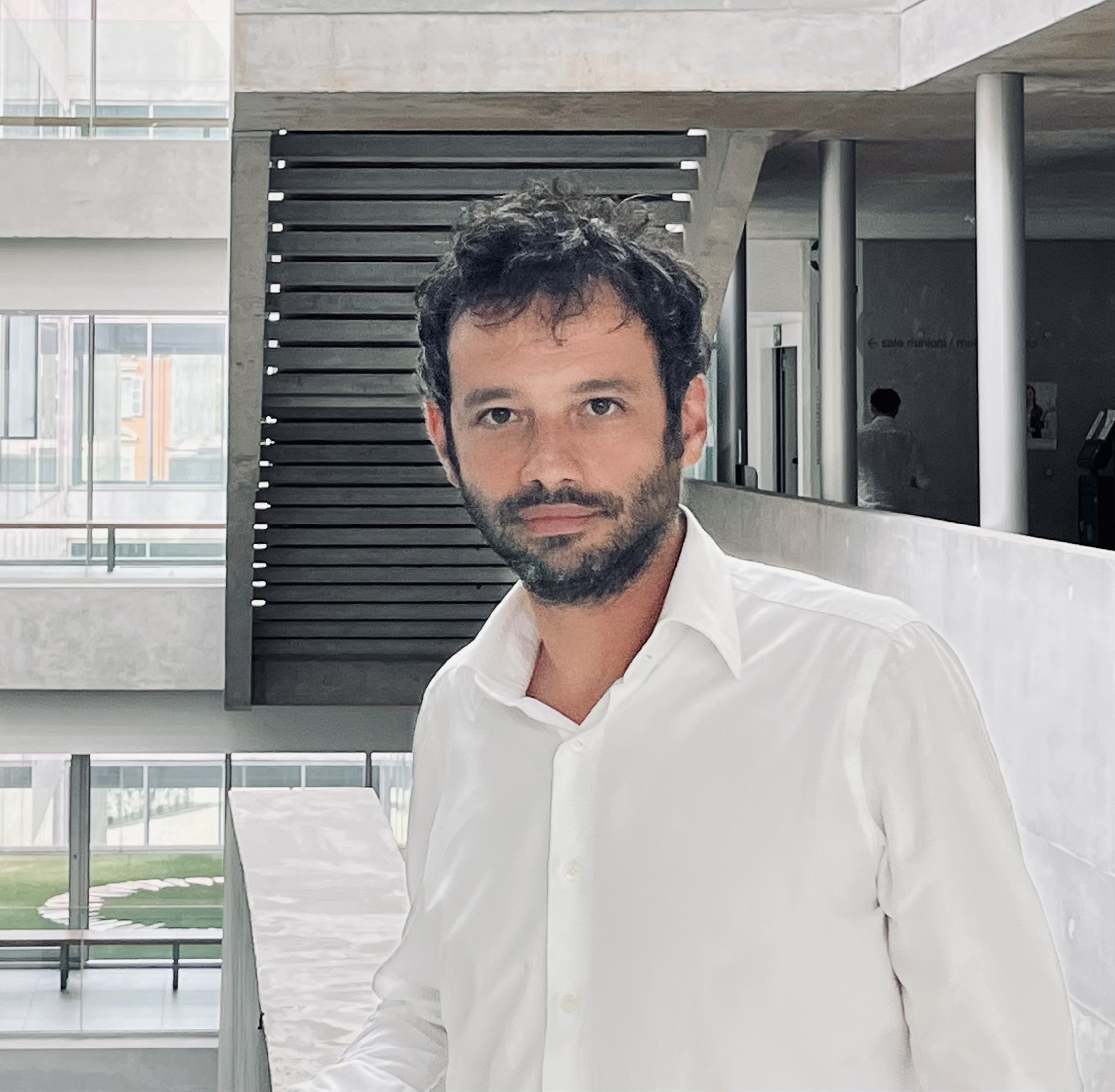
Luigi Iovino is an Associate Professor of Economics at Bocconi University and a Research Fellow at CEPR. His research focuses on the economy-wide impact of informational frictions and bounded rationality, and demonstrates how these frictions shape the design of fiscal and monetary policy. His recent work investigates the environmental impact of policy. He received a PhD in Economics from MIT.

Hyeyoon Jung is a Financial Research Economist at the Federal Reserve Bank of New York. Her research interests lie in international finance, financial intermediation, asset pricing, and climate finance. She holds a PhD in Finance from NYU Stern, BS in Economics from UPenn Wharton, and BAS from UPenn School of Engineering and Applied Science. Prior to graduate school, she worked as an FX & Rates trader at J.P. Morgan.

Marcin Kacperczyk is a Professor of Finance at Imperial College London with research interests in the areas of sustainable investments, climate finance, information economics, financial intermediation, and financial stability. He is a Research Associate at the Center for Economic Policy Research, a research advisor at the European Central Bank, and the co-editor of the Review of Asset Pricing Studies and the Review of Finance. Marcin’s work has been widely covered by media, such as CNN, CNBC, Bloomberg, WSJ, FT, NYT, Business Week, U.S. News, and Washington Post. He is a past holder of the European Research Council research grant and former President of the European Finance Association.

Andrew Karolyi holds the Harold Bierman Jr. Distinguished Professorship in Management at the Cornell SC Johnson College of Business and currently serves as the Charles Field Knight Dean of the College.
His research specializes in investment management focusing on international financial markets. He has published extensively in peer-reviewed journals in Finance and Economics and has published several books including Cracking the Emerging Markets Enigma.
Professor Karolyi served as Executive Editor of the Review of Financial Studies He is a past president of the Western Finance Association, the Financial Management Association, and is a member of the board of the American Finance Association. He serves on several not-for-profit boards, including HRH The Prince of Wales’ Accounting for Sustainability Project and the UN Global Compact’s Principles for Responsible Management Education.
Professor Karolyi received his BA in Economics from McGill University and his MBA and PhD
degrees in Finance at the University of Chicago.

Dasol Kim is a Principal Economist at the Office of Financial Research. His research interests center on the banking sector, financial intermediation, behavioral finance, and climate finance. Prior to joining the Office of Financial Research, he served on faculty at the Weatherhead School of Management, Case Western Reserve University. He holds a doctorate in financial economics from the Yale School of Management, a master’s degree from Columbia University, and a bachelor’s degree from the University of California, Los Angeles. Prior to earning his doctorate, he served as a research and teaching fellow at Stanford Law School.
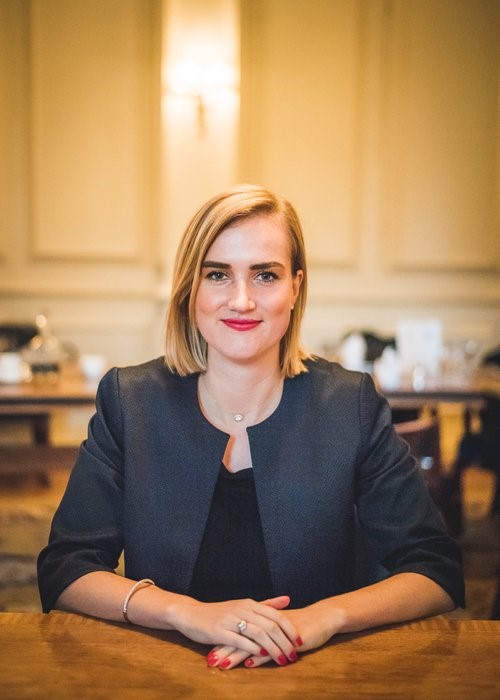
Alissa Kleinnijenhuis is a Research Scholar at the Stanford Institute of Economic Policy Research (SIEPR) at Stanford University. She is also a Senior Research Associate at the Institute for New Economic Thinking (INET) at the Oxford Martin School of the University of Oxford. Alissa is a Co-PI of a Market Ecology & Financial Stability Grant, supervising four PhD students, and Co-Founder of the Environmental Stress Testing and Scenarios Program (ESTS), both at the University of Oxford. She taught a novel course at Stanford University in Fall 2021 on Climate Finance. Kleinnijenhuis’ research examines how finance can advance the public good, focusing on how the financial sector can be leveraged as a first-order driver of a climate change solution.
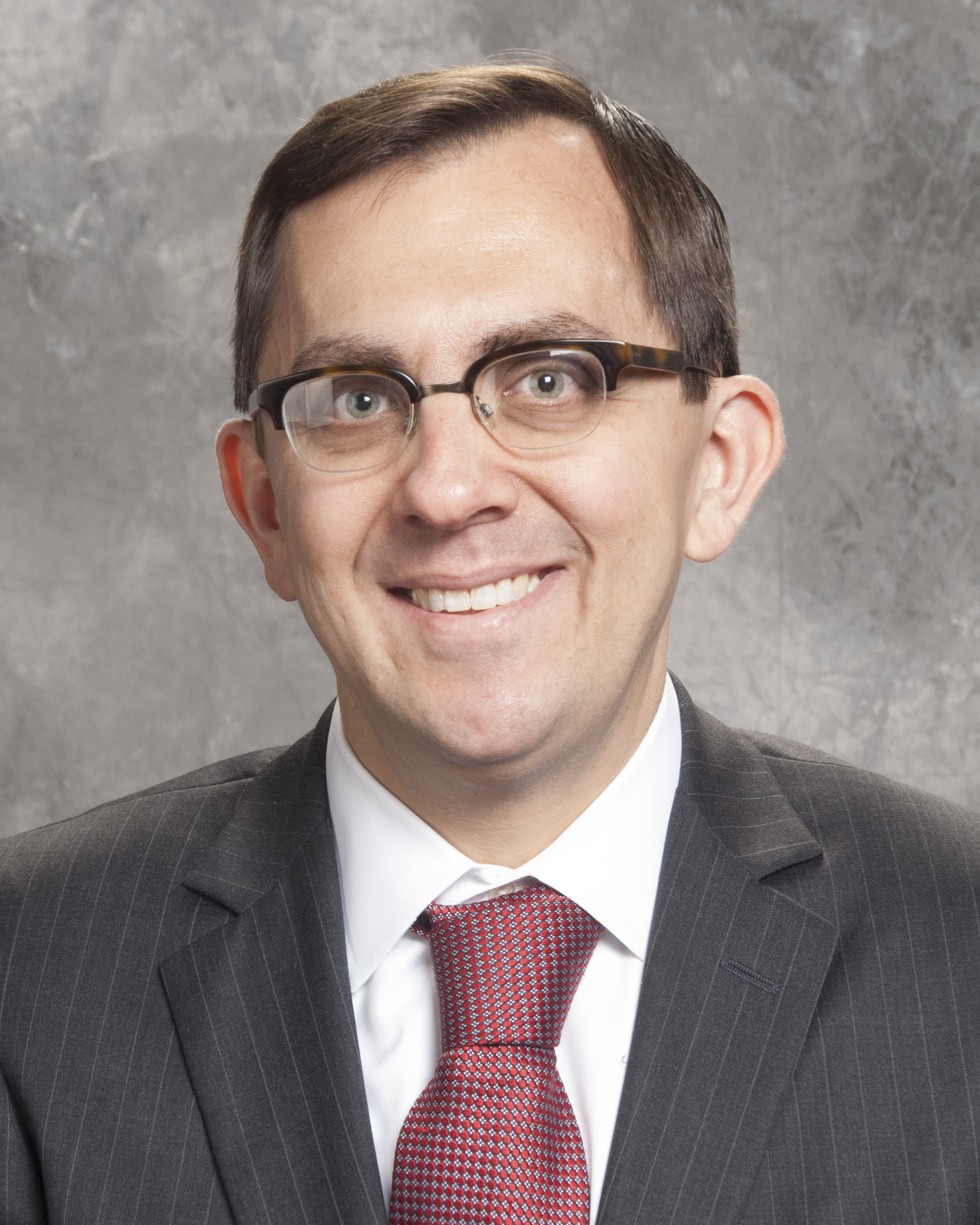
Andreas Lehnert is the director of the Division of Financial Stability at the Federal Reserve Board in Washington, DC. Andreas joined the Fed after earning his PhD in economics from the University of Chicago. He started in the household finance research group where he worked on a variety of topics in consumer and mortgage credit, including consumer bankruptcy and foreclosure. During the 2007-2009 financial crisis, he contributed to several projects including various mortgage modification initiatives, TARP, the 2009 bank stress tests and the TALF. In November 2010 he moved to the Board’s newly created financial stability group and in December 2016 he was appointed director. The division oversees the Fed’s periodic assessment of financial stability, including publishing the Financial Stability Report twice per year; supports policymaking to enhance financial stability, including the countercyclical capital buffer and the scenarios used in the Board’s periodic stress tests; and manages the Board staff response to stress events, including the set of 13 facilities deployed following the March 2020 onset of the pandemic. The division also supports the Federal Reserve’s role on the Financial Stability Oversight Council and the Financial Stability Board. Andreas’ research focuses on financial stability, macroprudential policy, banking, and finance.
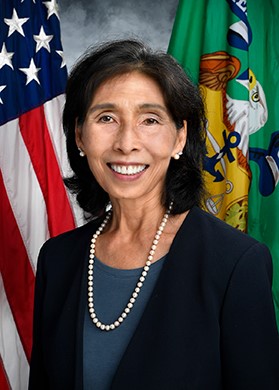
Nellie Liang was confirmed as the Under Secretary for Domestic Finance at the U.S. Treasury Department on July 15, 2021. Prior to serving at Treasury, Liang was a Senior Fellow in Economic Studies at the Brookings Institution. She also was a Visiting Scholar at the International Monetary Fund’s Monetary and Capital Markets Department, Lecturer at the Yale School of Management, and a member of the Congressional Budget Office’s Panel of Economic Advisors. Over three decades at the Board of Governors of the Federal Reserve System, Liang held a range of positions, including as the first Director of the Division of Financial Stability from 2010 to 2017. In that position, she oversaw the development of financial stability policies related to risks in financial firms and financial markets, and interactions of financial policies with monetary policy. Liang received a PhD in economics from the University of Maryland and a BA in economics from the University of Notre Dame.
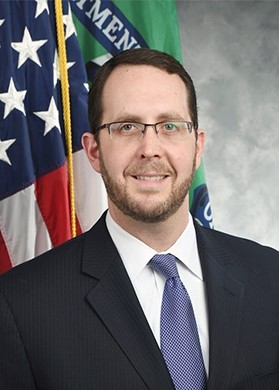
James Martin is the Acting Director and Deputy Director for Operations for the OFR. He oversees the OFR's budget, human capital, administrative support, procurement, facilities, and emergency management programs. He is also responsible for organizational policy, performance and planning, as well as communications. Prior to joining the OFR in June 2016, Martin held a number of leadership roles in the U.S. Department of the Treasury and served for nearly 20 years in a variety of federal operational, information collection and analysis roles within the national security community. He has a master's degree and a bachelor's degree, both in business administration. He also holds an executive certificate in international business management. He is a veteran of the U.S. Air Force.

Sabine Mauderer has been Member of the Executive Board of the Deutsche Bundesbank since September 2018. She is responsible for the Directorates Human Resources and Mar-kets, which includes the implementation of monetary policy. In this capacity, she is currently Vice-Chair of the “Central banks and Supervisors Network for Greening the Financial System (NGFS)”, before becoming Chair of the network in the beginning of 2024. Additionally, she is a member of the Exchange Experts Commission. Prior to her current responsibilities, she held several senior positions at the KfW Banking group and worked as a senior adviser at the Federal Ministry of Finance and at the German Embassy in Washington. Sabine Mauderer was born in Schleswig in 1970. She studied lawin Germany and Spain, holds a PhD by the Osnabrück University and an Executive MBA by the ESSEC & Mannheim Business School.

Antony Millner is an Associate Professor of Economics at the University of California, Santa Barbara. He works on a variety of applied theory topics in economics, often with a focus on environmental applications. Current research topics include intertemporal choice and discounting, decision-making under uncertainty, the economics of climate change and other long-run global risks, and political and behavioural economics. He is a Faculty Research Fellow at the National Bureau of Economic Research, and a Senior Research Associate at the Global Priorities Institute at Oxford University.
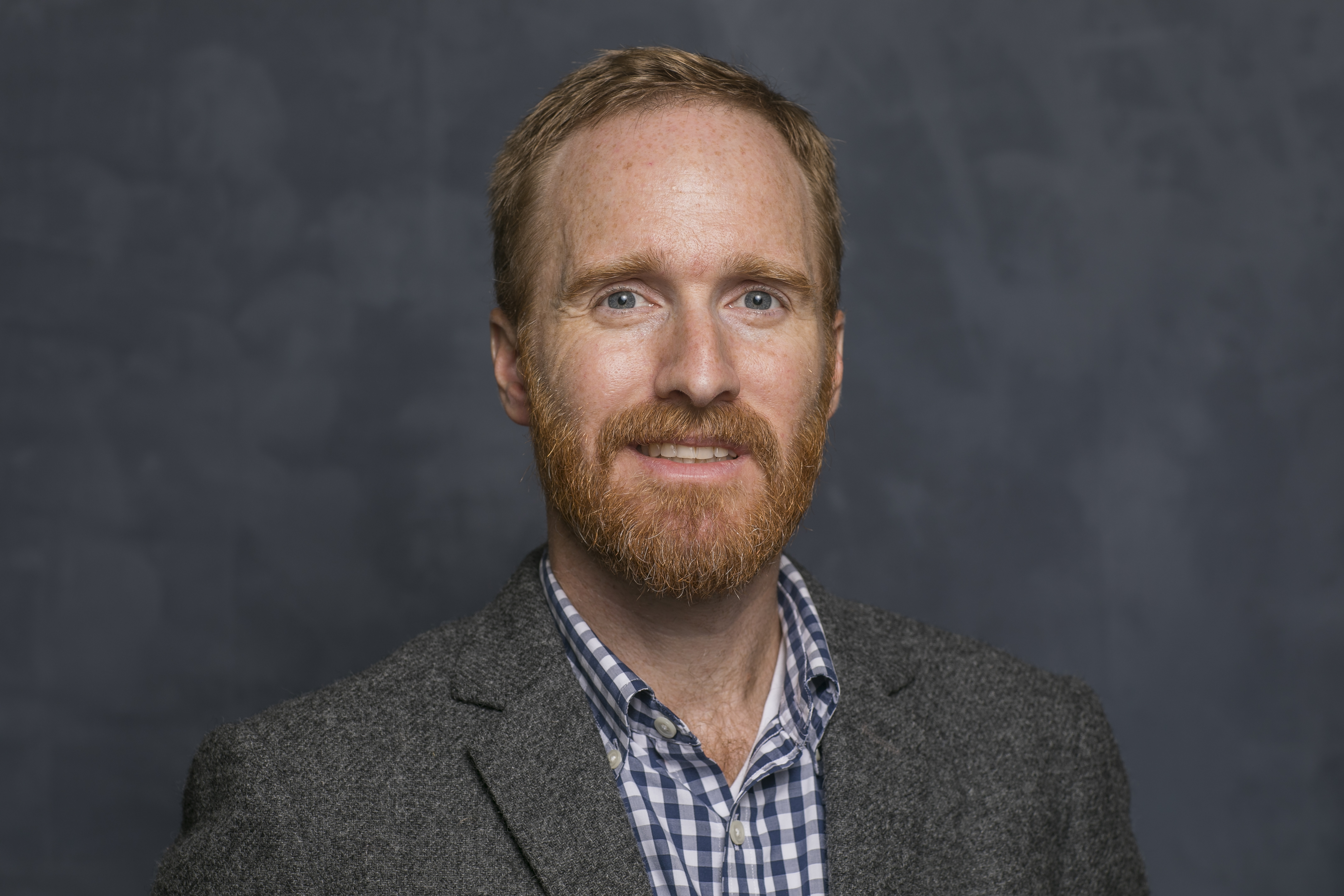
Justin Murfin is an Associate Professor of Finance in the SC Johnson College of Business and the Dyson School of Applied Economics and Management at Cornell University. He is a former area coordinator for the finance area at Cornell and serves as an associate editor at the Journal of Financial Economics, the Review of Financial Studies, the Journal of Financial Intermediation, and the Journal of Financial Services Research. His research interests include financial intermediation, financial contracting, and the mechanisms by which price and non-price terms of credit are established. Prior to his appointment at Cornell, he served as an associate and assistant professor of finance at the Yale School of Management. He completed his PhD at Duke University, has a masters in economics from SMU, and an undergraduate degree from Princeton University. From 1998-2003, he worked for Barclays Capital in New York, Miami and Bogotá, Colombia.

Toan Phan is a senior economist in the Research Department at the Federal Reserve Bank of Richmond. He is also a coauthor of the inaugural economics chapter in the 5th U.S. National Climate Assessment and a visiting scholar to the Office of Financial Research at the U.S. Department of the Treasury. His recent research focuses on the effects of climate change on the macroeconomy and the financial system. He earned his doctorate from Northwestern University in 2012 and his bachelor of science in mathematics from Bucknell University in 2006. He is from Hanoi, Vietnam.

Monika Piazzesi is the Joan Kenny Professor of Economics at Stanford University, and a Professor (by courtesy) at the Stanford Graduate School of Business. She is research associate at the NBER, where she was the director of the NBER Asset Pricing Program. She is also a CEPR Research Fellow, a SIEPR Senior Fellow, and a Fellow of the Academy of Arts and Sciences, the Econometric Society, a SoFIE Fellow, a Distinguished Fellow of the Macro Finance Society, and a Guggenheim Fellow during 2015-2016. During the years 2006-2014, she was co-editor of the Journal of Political Economy. Prior to joining Stanford, she taught at the University of Chicago Booth School of Business and UCLA Anderson. She received the Elaine Bennett Research Prize and the Bernazer Price for Research in Macroeconomics and Finance. Her research is about macro-finance, including monetary policy, fixed income markets, housing markets, banking, CBDC, and climate finance. Monika received her Diplom in Economics from the University of Bonn and her PhD from Stanford.

Laura T. Starks, PhD, is the George Kozmetsky Centennial University Distinguished Chair at the McCombs School of Business, University of Texas at Austin, where she teaches graduate and undergraduate courses on environmental, social and governance investing. Her current research focuses on ESG issues, including climate finance and board diversity, as well as molecular genetics and financial decisions. She has won many awards for her research and teaching. She is Research Associate of the NBER, Research Member for the ECGI, and Senior Fellow for ABFER. She has served as President of the Society of Financial Studies, Western Finance Association and Financial Management Association, and is presently President-Elect of the American Finance Association. She is Editor of the FMA Survey and Synthesis Series, Advisory Editor for the Financial Analysts Journal and Financial Management and previously, Editor of the Review of Financial Studies. She has served or currently serves on mutual funds’ boards of directors, pension fund advisory committees, the Board of Governors of the Investment Company Institute, and the Governing Council of the Independent Directors Council, and advisory committees for the Norwegian Government Pension Fund.

Jeremy C. Stein is the Moise Y. Safra Professor of Economics at Harvard University, where he teaches courses in the undergraduate and PhD programs, and serves on the board of directors of the Harvard Management Company. From May 2012 to May 2014, he was a member of the Board of Governors of the Federal Reserve System. Before coming to Harvard in 2000, Stein was on the finance faculty of M.I.T.’s Sloan School of Management for ten years, most recently as the J.C. Penney Professor of Management. Prior to that, he was an assistant professor of finance at the Harvard Business School from 1987-1990. He received his AB in economics summa cum laude from Princeton University in 1983 and his PhD in economics from M.I.T. in 1986. Stein’s research has covered such topics as: behavioral finance and market efficiency; corporate investment and financing decisions; risk management; capital allocation inside firms; banking; financial regulation; and monetary policy. Stein is a fellow of the American Academy of Arts and Sciences, a research associate at the National Bureau of Economic Research, and a member of the Federal Reserve Bank of New York’s Financial Advisory Roundtable. In 2008, he was president of the American Finance Association. In 2009, he served as a senior advisor to the Treasury Secretary and on the staff of the National Economic Council. From 2018 to 2021, he was chair of Harvard’s economics department.

Kevin J. Stiroh is a Senior Advisor in the Division of Supervision and Regulation at the Board of Governors of the Federal Reserve System. In this capacity, he is the Chair of the Federal Reserve’s Supervision Climate Committee, a multi‐disciplinary committee designed to develop a supervisory approach to increase the resilience of supervised institutions to climate‐related financial risks. He is also the Co‐Chair of the Basel Committee’s Task Force on Climate‐Related Financial Risks. Mr. Stiroh joined the Federal Reserve Bank of New York in March 1999 as an economist in the Research and Statistics Group and held a range of positions in the Research and Statistics, Supervision, Markets, and Integrated Policy Analysis groups. Most recently, Mr. Stiroh was Executive Vice President and head of the Supervision Group. Mr. Stiroh's academic research includes work on productivity and the sources of economic growth, the economic impact of information technology, and the efficiency and behavior of financial institutions. This research has been published in the American Economic Review, Brookings Papers on Economic Activity, Journal of Banking and Finance, Journal of Economic Perspectives, Journal of Money, Credit and Banking, Review of Economics and Statistics and other academic and business publications. Mr. Stiroh holds a bachelor’s degree from Swarthmore College in Economics and Psychology and an MA and PhD from Harvard University in Economics.

Johannes Stroebel is the David S. Loeb Professor of Finance at the New York University Stern School of Business. He joined NYU in 2013 from the University of Chicago Booth School of Business, where he was the Neubauer Family Assistant Professor of Economics.
Professor Stroebel conducts research in climate finance, household finance, social network analysis, macroeconomics, and real estate economics. He has won numerous awards, including the AQR Asset Management Institute Young Researcher Prize and the Brattle Award for the best paper published in the Journal of Finance. He has also won an Andrew Carnegie fellowship and an Alfred P. Sloan Research Fellowship in Economics.
Professor Stroebel is an Associate Editor at the Journal of Political Economy, the Review of Economic Studies, Econometrica, and the Journal of Finance. Professor Stroebel is also a member of the Climate-Related Market Risk Subcommittee at the Commodities and Futures Trading Commission (CFTC), as well as a
member of a Working Group on Extreme Weather and Financial Risks at the President’s Council of Advisors on Science and Technology (PCAST). Professor Stroebel read Philosophy, Politics, and Economics at Merton College, Oxford, where he won the Hicks and Webb Medley Prize for the best performance in Economics. He earned a PhD in Economics at Stanford University, where he held the Bradley and Kohlhagen Fellowships at the Stanford Institute for Economic Policy Research.

Sumudu Watugala is an assistant professor of finance at the Kelley School of Business at Indiana University. Her research interests are in financial intermediation, asset pricing, international finance, asset management, and climate finance. She obtained her doctoral degree from the University of Oxford and her bachelor’s and master’s degrees from the Massachusetts Institute of Technology. Her prior experiences include working at a hedge fund in quantitative research and trading with a focus on volatility arbitrage and derivatives trading.